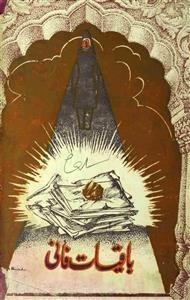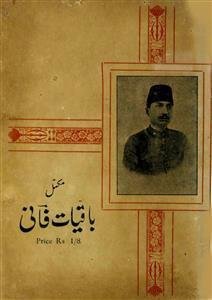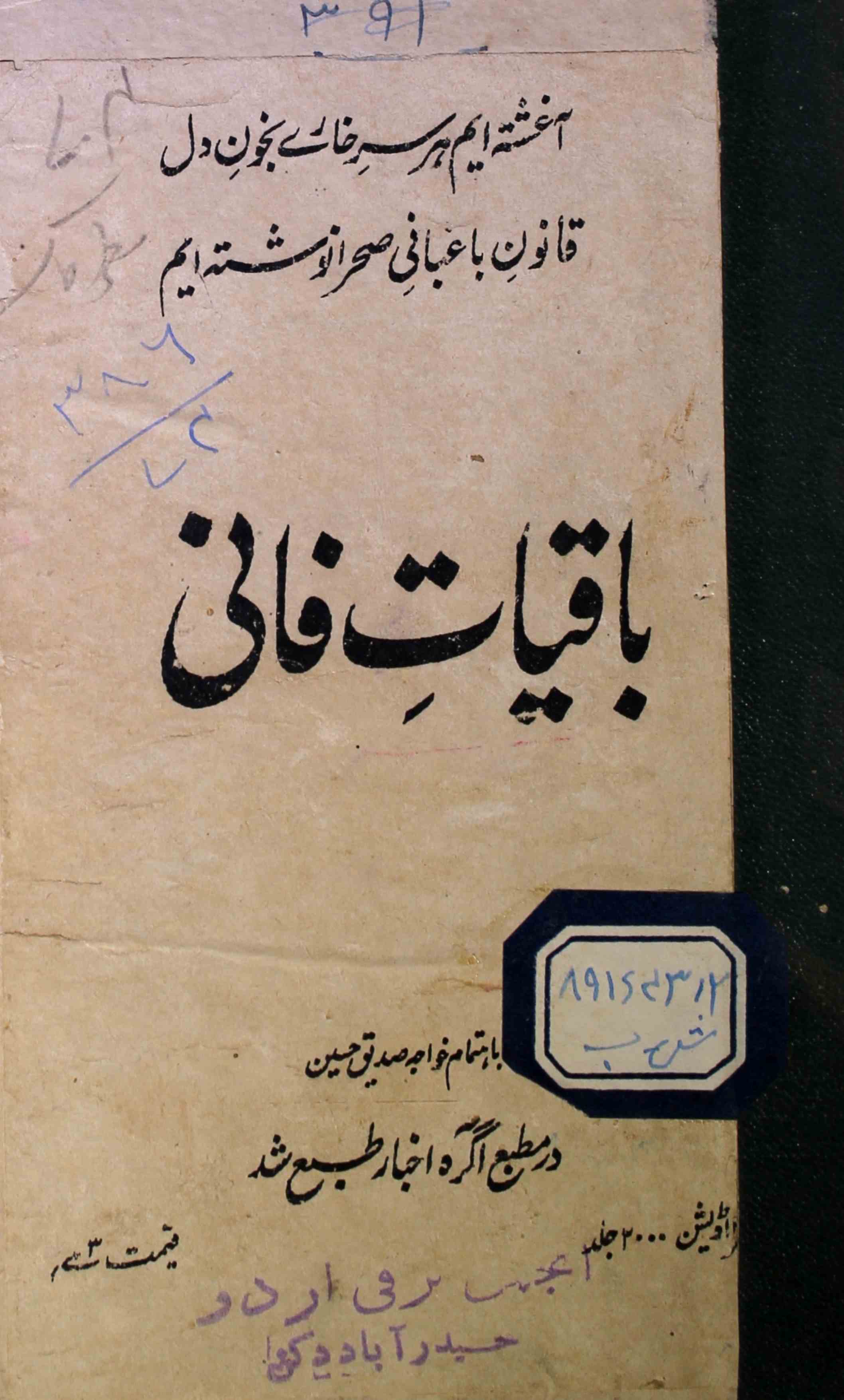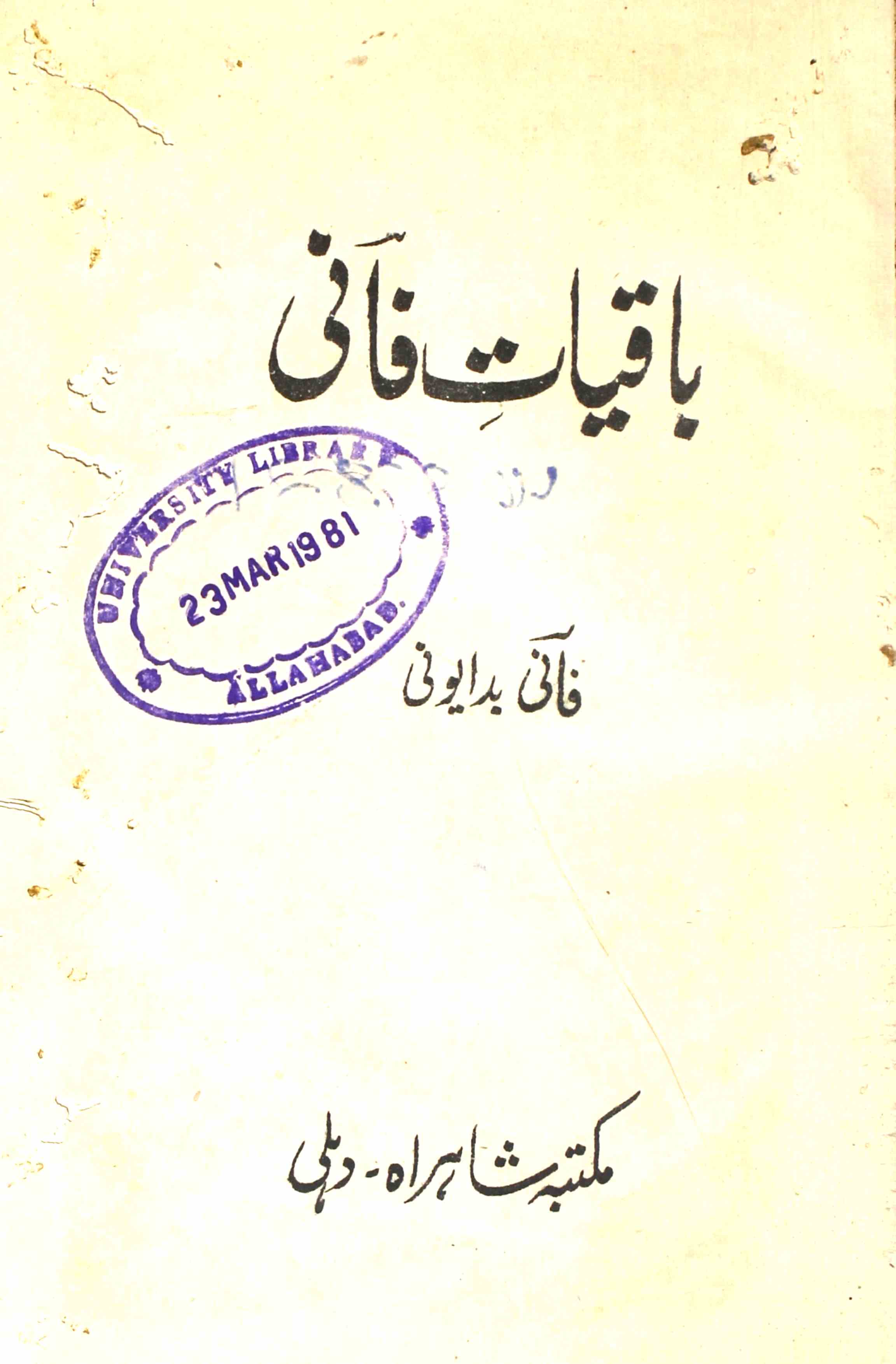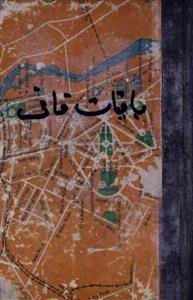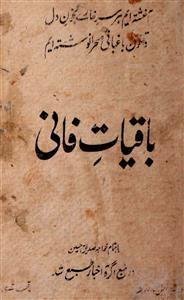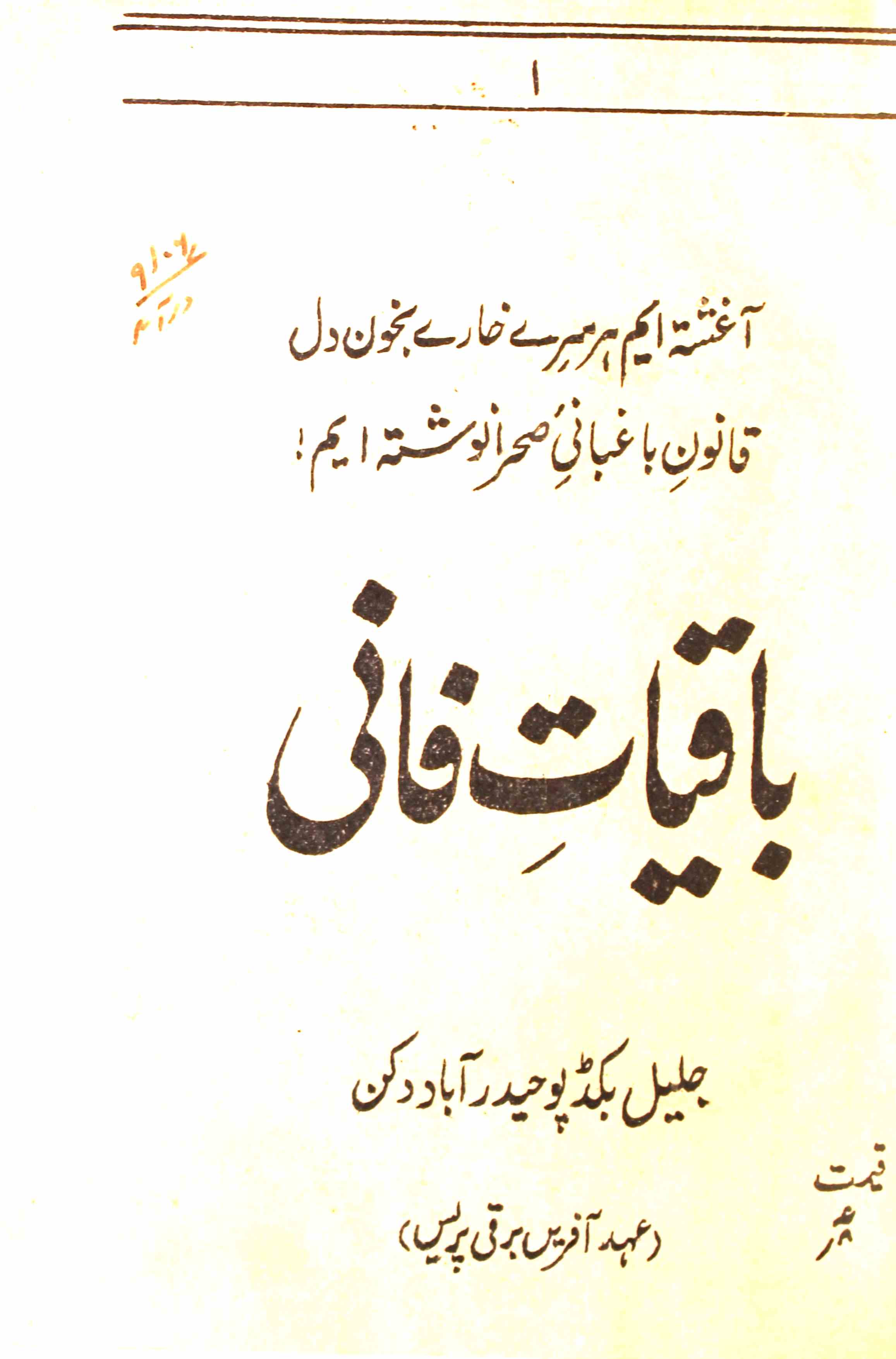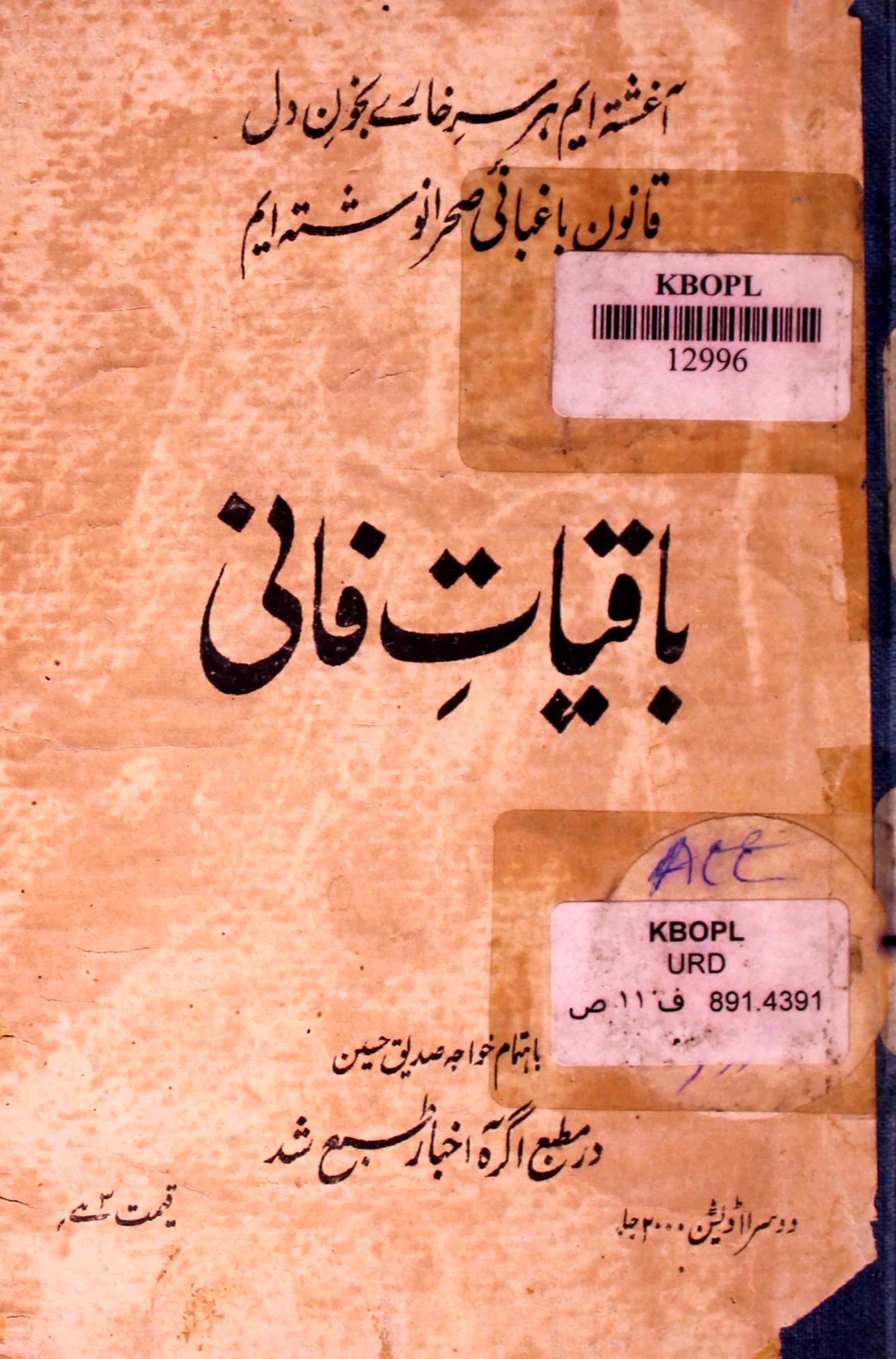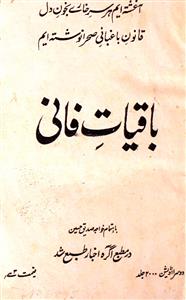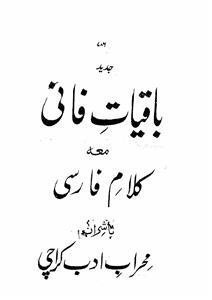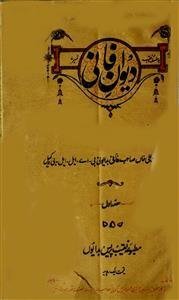 For any query/comment related to this ebook, please contact us at haidar.ali@rekhta.org
For any query/comment related to this ebook, please contact us at haidar.ali@rekhta.org
About The Book
زیر نظر کتاب فانی بدایونی پر ہے۔ فانی کے متعلق یہ بتانے کی چنداں ضرورت نہیں کہ ان کی شاعری پر بہت کچھ لکھا جا چکا ہے۔ اس میں کچھ بہت اچھا بھی ہے اور کچھ بہت سطحی۔ اردو کے تقریباً ہر بڑے ناقد نے ان پر خامہ فرسائی کی ہے۔ ان کی شاعری کے حوالے سے یہ بات بھی اہم ہے کہ جہاں ان کی زندگی میں ہی ان کے بہت چاہنے والے تھے وہیں ان سے نفرت کرنے والے بھی کم نہ تھے۔ لیکن ان کے اس کلام کی اہمیت یوں بھی زیادہ ہے کہ ایک تو اس میں فانی کا وہ کلام بھی شامل ہے جو کہیں نہیں ملتا، دوئم یہ کہ اس میں ان کی وہ غزلیں بھی شامل ہیں جو ہیں تو زبان زد خاص و عام لیکن ان کی مکمل شکل اس کتاب میں شامل ہیں مثلاً ان کی مشہور غزل زندگی خود بھی پشیماں ہے یہاں لا کے مجھے کا پورا ورژن یہاں موجود ہے۔ کتاب کا مقدمہ انتہائی جامع و کامل ہے جسے فانی کے خصوصی ملاقاتیوں میں شامل رہے ضیائے عباس ہاشمی نے لکھا ہے۔
About The Author
Born Shaukat Ali Khan at Islam Nagar in Badayun district, Fani Badayuni (1879-1941) hailed from a family that had migrated to India from Kabul during the reign of Shah Alam and received huge favours in terms of power and material possessions. His father, however, did not see the glory of his ancestors and had to join government service and work in the police force. Fani got the degrees of Bachelor of Arts in 1901 from Bareilly College and Bachelor of Laws in 1908 from Aligarh Muslim University. Subsequently, he started practicing law but did not do quite well. He shifted to Agra in 1923 and continued his practice there for another nine years with short stints of legal practice in Badaun and Bareilly. Unable to sustain in the profession any further, he moved to Hyderabad at the invitation of Maharaja Sirkishan Prasad in 1932 and worked there as a head teacher and continued working till 1939. After that he remained unemployed. Added to his professional disappointments, were the demise of his daughter and wife with which he shrunk in his own shell without seeking favours from any quarters, or stooping low before anyone. A forlorn man, he expressed himself rather unreservedly, “I have been a disgrace to my family, a burden on this earth; my existence cannot be of any use to anyone; it is of no use even to me.” Fani met his end in Hyderabad where he lies buried.
Fani is supposed to be a poet of pain and pining like Meer and compares well with him in the way he imparted a touch of existential angst to his poetry and brought a touch of genius to it. He completed his divan quite early in his life at the age of twenty or twenty two and the second one at twenty seven. However, these works were lost for good. It was only his later work that was put together in his collections Diwan-e Fani, Baqiat-e Fani, and Irfaniyaat-e Fani. His poetry is remarkable for its rich ambiguity, precision of expression, and spontaneity of tone.
 For any query/comment related to this ebook, please contact us at haidar.ali@rekhta.org
For any query/comment related to this ebook, please contact us at haidar.ali@rekhta.org
